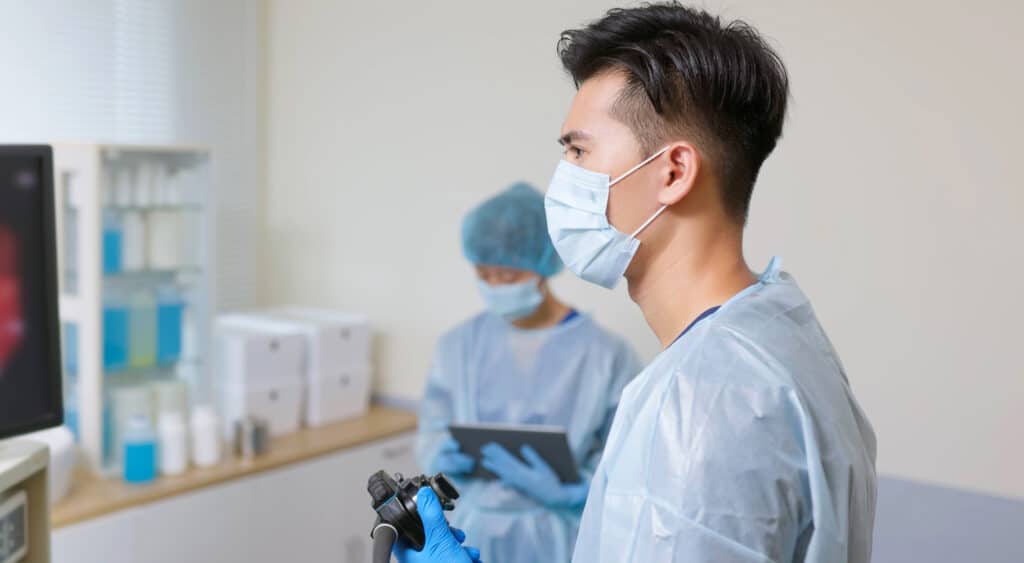Colon cancer screenings in East Texas
When it comes to scheduling a colonoscopy at a UT Health East Texas facility, your comfort, care and convenience come first. Every aspect of your colon cancer screening is carefully designed with your health and time in mind. And since a prescreening appointment or evaluation with a gastroenterologist isn’t necessary for most patients, you’re likely to save time and money, too. Our tests help catch signs of colon cancer as early as possible to reduce your risk of developing colorectal cancer. From scheduling to procedure and recovery, our colonoscopy team will ensure you receive prompt, reliable care you can depend on.

Colonoscopy services
Colorectal cancer is the third leading cause of cancer-related deaths in the United States. However, with proper screening, colon and rectal cancer can be prevented. Colorectal cancer often starts in the large intestine (colon and rectum) as a polyp, a small growth on the inner lining of the colon. Symptoms can be nonspecific. Common abdominal ailments or a change in bowel habits are common occurrences, but don’t always mean you have colorectal cancer.
According to the American Cancer Society, the recommended age to start regular colorectal screening is 45 unless you have a family history of colorectal cancer or predisposing, inherited syndrome. Other factors that may contribute to colonic polyps include inflammatory bowel disease, smoking, obesity, drinking alcohol, lack of exercise and eating a diet rich in fats.
Screening is recommended for patients who have the following symptoms:
- Blood in the stool
- Rectal bleeding
- Change in bowel habits or lower abdominal cramping
- Family history of colon cancer and over age 40
- Over age 45 (even without symptoms)
Adults without a family history of colorectal cancer should begin screening at age 45. If you are African American or your family has a history of colorectal cancer, ask your doctor when you should begin screening. The national recommendation to get screened is every 10 years unless abnormalities are present or the person is at high risk. Contact your health insurance provider to determine if colonoscopy is a covered service for you.
Schedule your colonoscopy today by calling one of our locations.
What to expect during your colonoscopy
A colonoscopy is the best way to detect colorectal cancer. This examines the entire large intestine and detects the presence of polyps that could be or possibly become cancerous. When discovered early, colon cancer is highly treatable, so colonoscopy screening is crucial.
Your physician uses a small camera attached to a thin, flexible tube to examine the entire colon. While looking for any signs of cancer, he or she can detect abnormal growths, known as polyps, that could possibly become cancerous and remove them. When discovered early, colon cancer is highly treatable, so colonoscopy screening is crucial.
Prior to the procedure, you will receive sedatives through an IV. The entire process generally takes 30 to 60 minutes. You will need someone to drive you home after the procedure.
Preparing for your colonoscopy
You will receive your colonoscopy preparation instructions well before your procedure date. You may be required to adjust your diet. You will need to consume a prescription laxative drink that will allow you to empty and clean your bowel entirely before the procedure.
Wear loose clothing and stay near the bathroom. Plan ahead so you have the time and privacy you need to complete the preparation process. Ask your physician any questions you have.
Typically, the only recovery needed post-colonoscopy is allowing the sedative to wear off. That normally occurs in less than 24 hours. A vast majority of patients return to work the next day. Avoid driving the day of the procedure.
